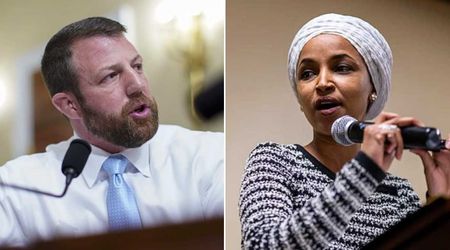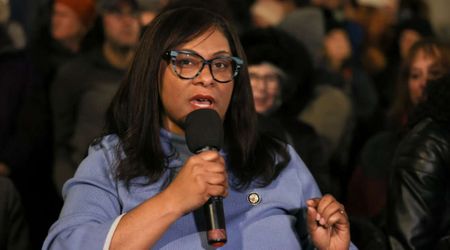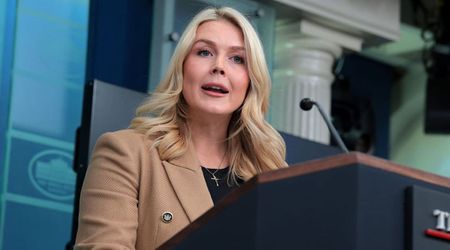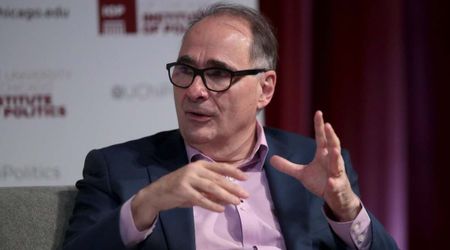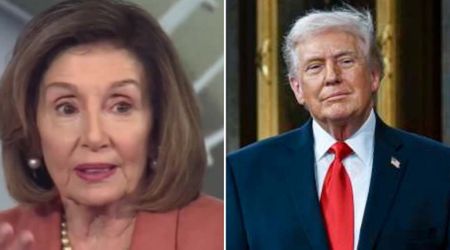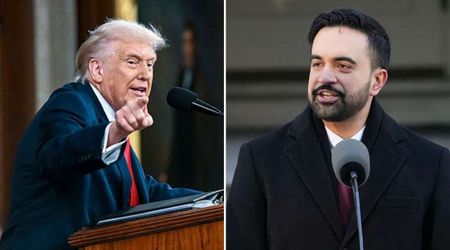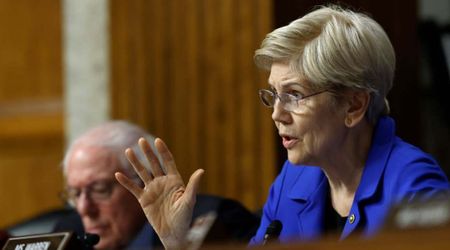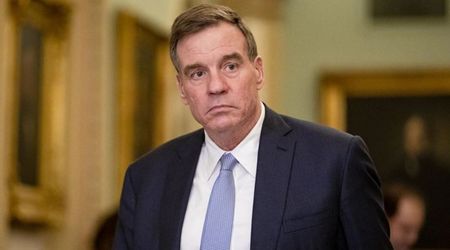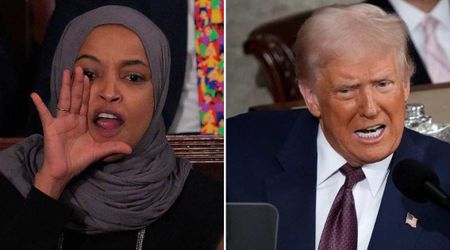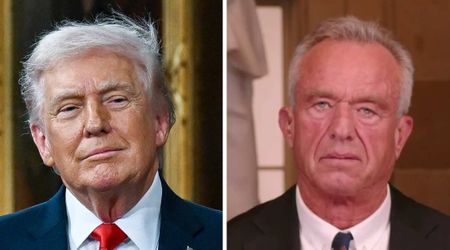Sheriff reveals how Trump’s would-be assassin Ryan Routh got within 300 yards of ex-POTUS on golf course
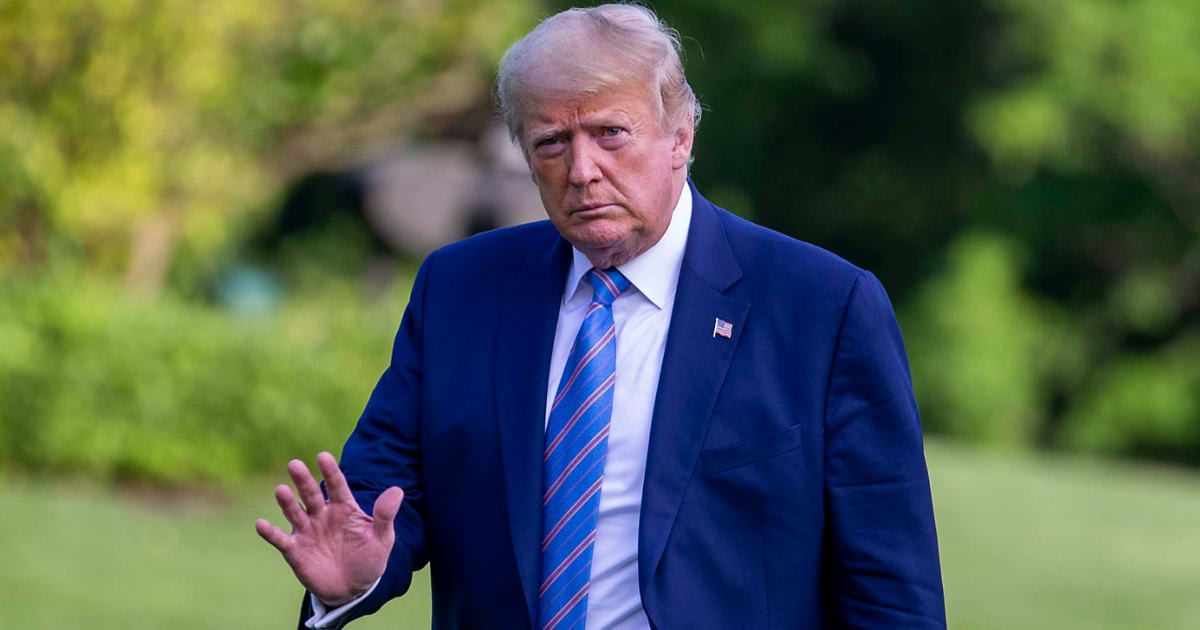
PALM BEACH, FLORIDA: It seems like former president Donald Trump just can't catch a break when it comes to threats on his life.
The Secret Service thwarted yet another assassination attempt aimed at the former-president on Sunday, September 15. This time, it happened while Trump was enjoying a round of golf at his West Palm Beach course in Florida. No one was hurt, but it was a close call with the shooter getting within 300 yards of Trump before the Secret Service opened fire.
But here's the kicker — according to West Palm Beach Sheriff Ric Bradshaw, Trump’s security was lighter than usual. Why? Because he's no longer the commander in chief.
While he’s currently campaigning for another shot at the presidency, Bradshaw explained that the level of security Trump receives has taken a dip since leaving office.
“At this level that he is at right now, he’s not the sitting president,” Bradshaw said. “If he was, we would have had this entire golf course around it. But because he’s not, security is limited to the areas that the Secret Service deems possible.”
“I would imagine that the next time he comes to a golf course, there’ll probably be a little bit more people around the perimeter. But the Secret Service did exactly what they should have done," he added.
The gunman —identified as 58-year-old Ryan Routh — was intercepted by agents who didn’t hesitate to act. Trump remained unharmed despite the close encounter.
What exactly is the protocol?
Now, here's where it gets interesting. You’d think that a former president running for office would get the same wall of protection as he did when he was in the White House. Not quite. The Secret Service has a tiered system for how they protect former presidents, current candidates, and sitting presidents.
But as Sheriff Bradshaw pointed out that Trump's security isn’t as beefed up as it used to be. “I would imagine that the next time he comes to a golf course, there’ll probably be a little bit more people around the perimeter,” he said.
So, what exactly is the protocol? According to the Secret Service, major presidential candidates are eligible for protection within a year of a general election, provided the Secretary of Homeland Security gives the green light. Part of the decision-making process involves assessing any threats aimed at the candidate.
Given Trump’s position as both a former president and a current candidate, it’s no surprise that he’s been under tight watch. In fact, the Secret Service amped up his protective detail after a previous assassination attempt during a rally in Butler, Pennsylvania in July.
However, the agency isn’t exactly forthcoming with details on how much protection a candidate like Trump receives compared to a sitting president. What we do know is that the first attempt on Trump’s life prompted the Secret Service to demand that he hold future outdoor events behind bulletproof glass.
Former presidents still at risk
Even though Donald Trump is out of office, the threats don’t magically disappear. Former presidents remain high-value targets, which means the Secret Service has to stay on its toes. Former Secret Service agent Tim Miller shed some light on the levels of protection for former presidents.
“It’s all based on whatever the Secret Service, through its intelligence and co-ordination capabilities, determines is appropriate for the protecting,” Miller told CBC News. The number of agents assigned to a former president depends on the potential threats they face and how long they’ve been out of office.
For instance, when George W Bush left the White House in 2008, he and his wife Laura had about 75 agents on their protection detail around the clock. And it wasn’t just about keeping an eye on things from a distance.
Ronald Kessler, author of 'In the President’s Secret Service: Behind the Scenes With Agents in the Line of Fire and the Presidents They Protect', explained how thorough the agency can be.
“Even a former president could be a goal of terrorists,” Kessler told CBC. “They can hold them hostage, for example.”
“If he’s going to go to a restaurant, they will go there first and check on the employees and check on their backgrounds to see if anybody has convictions for anything violent,” Kessler said, noting that Bush was always flanked by four agents wherever he went.
“Let’s say they’re going to a convention or something like that, they’ll definitely check the convention hall,” Kessler said. “They’ll have bomb-sniffing dogs go around.”
Donald Trump’s unique situation
Unlike George W Bush, who enjoyed a relatively quiet life after leaving office, Donald Trump is still very much in the public eye. This undoubtedly complicates things for the Secret Service. Miller pointed out that Trump’s status as both a former president and an active candidate creates unique security challenges.
“[That] would add some different dynamics because he’ll be going from site to site to site to site,” Miller explained. “You look at George W Bush, he went to the ranch, his dad went to Kennebunkport, and they lived relatively obscure lives from that point. That’s not the case with former president Trump.”
Major candidates have received protection ever since the assassination of Robert F Kennedy in 1968, but Trump's situation remains distinct because he’s no ordinary candidate. “Protection of a candidate/nominee is designed to maintain the integrity of the democratic process and continuity of Government,” the US Secret Service website states.
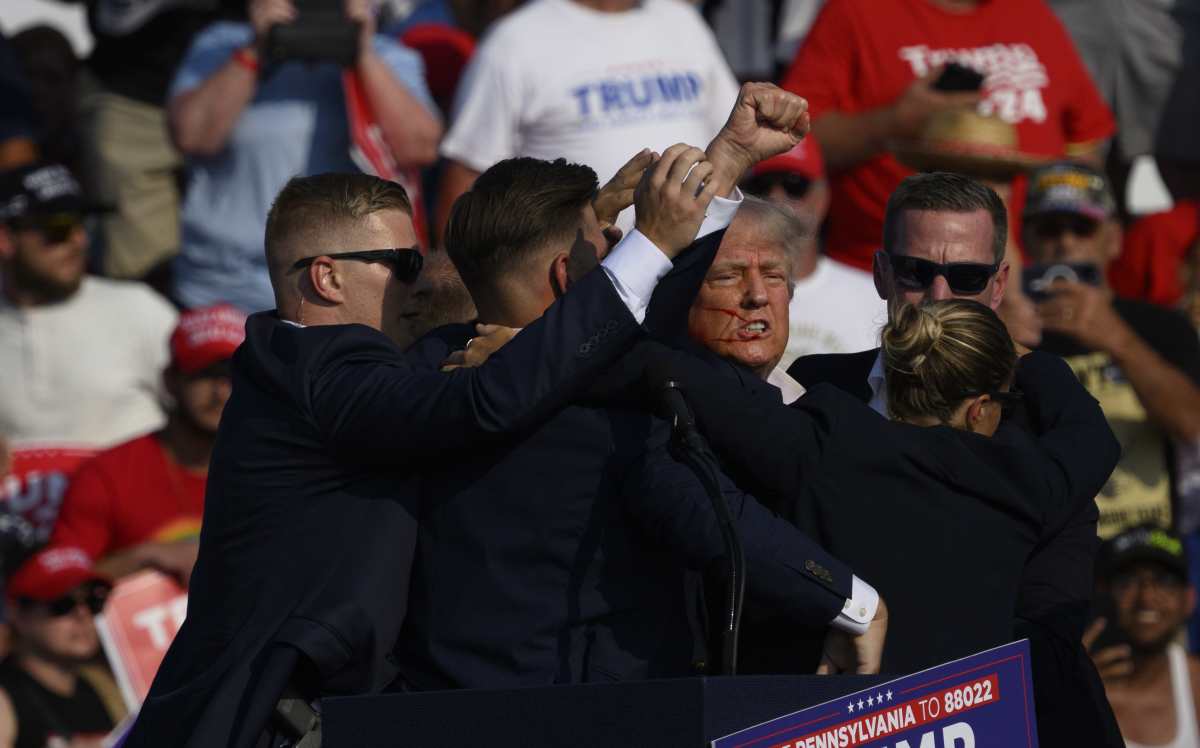
Back to Sunday’s incident — Trump was playing golf at around 2 pm at the Trump International Golf Course in West Palm Beach when a gunman was spotted approaching.
According to sources, the shooter had been lurking in the shrubbery and thus making it difficult for Trump’s security to spot him sooner. The suspect was eventually apprehended after being stopped on I-95 by local deputies.
Authorities are yet to establish the exact motive behind the shooting, but there are some clues. Sources told the New York Post that the shooter had posted frequently online with pro-Ukraine and pro-Taiwan sentiments. It remains to be seen whether this had any connection to the attack.

